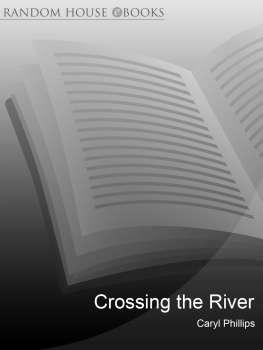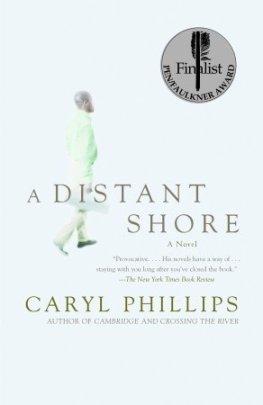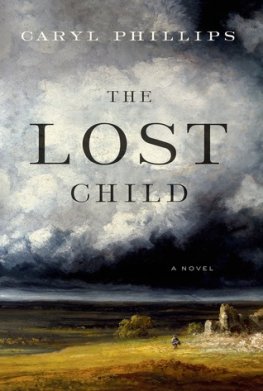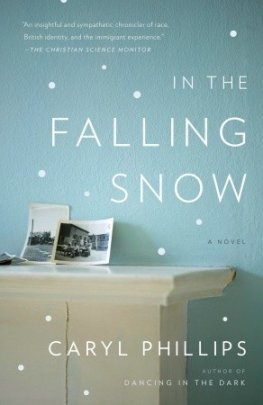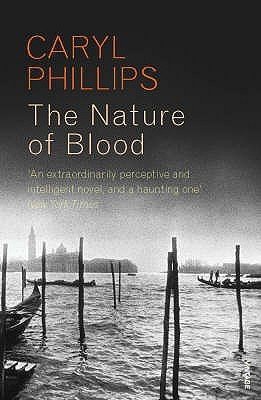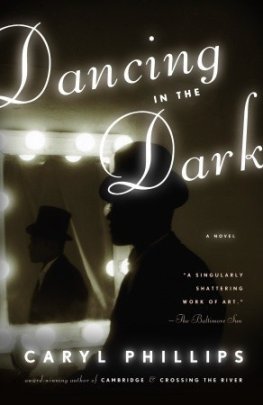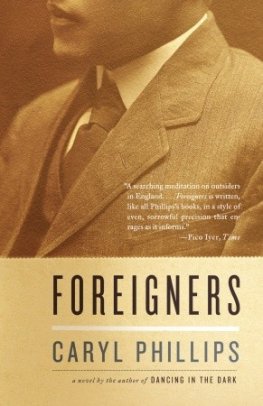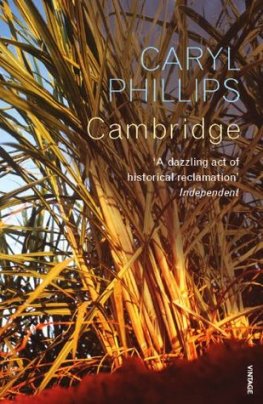About the Author
Caryl Phillips was born in St Kitts and now lives in London and New York. Crossing the River was shortlisted for the Booker Prize and his most recent novel, A Distant Shore, won the 2004 Commonwealth Writers Prize.
www.carylphillips.com
ALSO BY CARYL PHILLIPS
The Final Passage
A State of Independence
The European Tribe
Higher Ground
Cambridge
The Nature of Blood
The Atlantic Sound
A New World Order
A Distant Shore
Dancing in the Dark
CROSSINGTHE RIVERCaryl PhillipsVINTAGE BOOKSLondon
This eBook is copyright material and must not be copied, reproduced, transferred, distributed, leased, licensed or publicly performed or used in any way except as specifically permitted in writing by the publishers, as allowed under the terms and conditions under which it was purchased or as strictly permitted by applicable copyright law. Any unauthorised distribution or use of this text may be a direct infringement of the authors and publishers rights and those responsible may be liable in law accordingly.
Epub ISBN: 9781409016946
Version 1.0
www.randomhouse.co.uk
Published by Vintage 2006
2 4 6 8 10 9 7 5 3 1
Copyright Caryl Phillips 1993
Caryl Phillips has asserted his right under the Copyright, Designs and Patents Act, 1988 to be identified as the author of this work
This book is sold subject to the condition that it shall not by way of trade or otherwise, be lent, resold, hired out, or otherwise circulated without the publishers prior consent in any form of binding or cover other than that in which it is published and without a similar condition including this condition being imposed on the subsequent purchaser
First published in Great Britain in 1993 by Bloomsbury Publishing Ltd
Vintage
Random House, 20 Vauxhall Bridge Road,
London SW1V 2SA
Random House Australia (Pty) Limited
20 Alfred Street, Milsons Point, Sydney,
New South Wales 2061, Australia
Random House New Zealand Limited
18 Poland Road, Glenfield, Auckland 10, New Zealand
Random House (Pty) Limited
Isle of Houghton, Corner of Boundary Road & Carse OGowrie,
Houghton, 2198, South Africa
Random House Publishers India Private Limited
301 World Trade Tower, Hotel Intercontinental Grand Complex,
Barakhamba Lane, New Delhi 110 001, India
The Random House Group Limited Reg. No. 954009
www.randomhouse.co.uk/vintage
A CIP catalogue record for this book
is available from the British Library
ISBN 9780099498261 (from Jan 2007)
ISBN 009949826X
Papers used by Random House are natural, recyclable products made from wood grown in sustainable forests. The manufacturing processes conform to the environmental regulations of the country of origin
Printed and bound in Great Britain by Bookmarque Ltd, Croydon, Surrey
For those who crossed the river
Acknowledgements
I have employed many sources in the preparation of this novel, but would like to express my particular obligation to John Newtons eighteenth-century Journal of a Slave Trader, which furnished me with invaluable research material for Part III.
CONTENTS
A desperate foolishness. The crops failed. I sold my children. I remember. I led them (two boys and a girl) along weary paths, until we reached the place where the mud flats are populated with crabs and gulls. Returned across the bar with the yawl, and prayed a while in the factory chapel. I watched as they huddled together and stared up at the fort, above which flew a foreign flag. Stood beneath the white-washed walls of the factory, waiting for the yawl to return and carry me back over the bar. In the distance stood the ship into whose keep I would soon condemn them. The man and his company were waiting to once again cross the bar. We watched a while. And then approached. Approached by a quiet fellow. Three children only. I jettisoned them at this point, where the tributary stumbles and swims out in all directions to meet the sea. Bought 2 strong man-boys, and a proud girl. I soiled my hands with cold goods in exchange for their warm flesh. A shameful intercourse. I could feel their eyes upon me. Wondering, why? I turned and journeyed back along the same weary paths. I believe my trade for this voyage has reached its conclusion. And soon after, the chorus of a common memory began to haunt me.
For two hundred and fifty years I have listened to the many-tongued chorus. And occasionally, among the sundry restless voices, I have discovered those of my own children. My Nash. My Martha. My Travis. Their lives fractured. Sinking hopeful roots into difficult soil. For two hundred and fifty years I have longed to tell them: Children, I am your father. I love you. But understand. There are no paths in water. No signposts. There is no return. To a land trampled by the muddy boots of others. To a people encouraged to war among themselves. To a father consumed with guilt. You are beyond. Broken-off, like limbs from a tree. But not lost, for you carry within your bodies the seeds of new trees. Sinking your hopeful roots into difficult soil. And I, who spurned you, can blame only myself for my present misery. For two hundred and fifty years I have waited patiently for the wind to rise on the far bank of the river. For the drum to pound across the water. For the chorus to swell. Only then, if I listen closely, can I rediscover my lost children. A brief, painful communion. A desperate foolishness. The crops failed. I sold my children.
I
THE PAGAN COAST
The news reached him after dinner. A well-liveried domestic entered the drawing-room, bowed and thrust forward a silver tray on top of which sat an envelope. Edward seized the letter and dismissed the servant with an elegant flick of his wrist. He levered himself upright and began to read. It was true. Nash Williams, sent to Liberia under the auspices of the American Colonization Society, having undergone a rigorous program of Christian education, and being of sound moral character, had disappeared from the known world. After seven difficult years in Liberia, in which he had worked with unswerving application to his own and his Gods tasks, in which he had apparently won the respect not only of the African natives, but of the free colored men from America, and of the few whites in the inhospitable clime, after seven long years this former bondsman who had been an inspiration to priests and educators alike was nowhere to be found. The worst was feared.
Nash Williams was a teacher of remarkable gifts. He was a man who, in a country in which fewer than two hundred heathens had been converted in almost twenty years, could lay claim to being responsible for at least fifty of the successes that were reported back to America. The reputation of his mission school was legendary, a fact all the more remarkable given the isolated position it occupied near the known head of the St Pauls River. The few letters he had sent back to his master, whilst full of the usual childish requests for tools, seeds, money and other necessities of life, positively bristled with the spirit of faith, courage and purpose. Then, a little under a year ago, and at the same time as a saddened Edward was mourning the loss of his wife, Nash Williams had conveyed, by means of an intermediary, an abrupt message making it plain that he had no desire ever to hear again from his former master, and informing him that his own communications would now cease. A disturbed and worried Edward, judging it best, at this juncture, not to communicate directly with Nash, had word and money sent by means of a packet out of New York that Madison Williams, an older and somewhat haughty former bondsman, should immediately journey from his place of abode in Monrovia and secure news of Nashs whereabouts and, if possible, his general state of health. Madison had, at an earlier time, borne Nash some feelings of ill-will, having reasoned, and to some degree correctly, that his masters affection for himself had been usurped by this younger interloper. But Edward trusted that the passage of time, and a change of climate, would have healed these old wounds, and that Madison would not resent the task with which he was now being entrusted. However, the letter before Edward bore the disturbing news of Madisons expedition. Not only had Madison failed to locate Nash, but he had been blocked at every turn by native intransigence, their crude vulgarity sometimes taking the form of aggression. The details set forth in Madisons sad letter let it be known that he considered himself fortunate to have escaped with his life intact.

